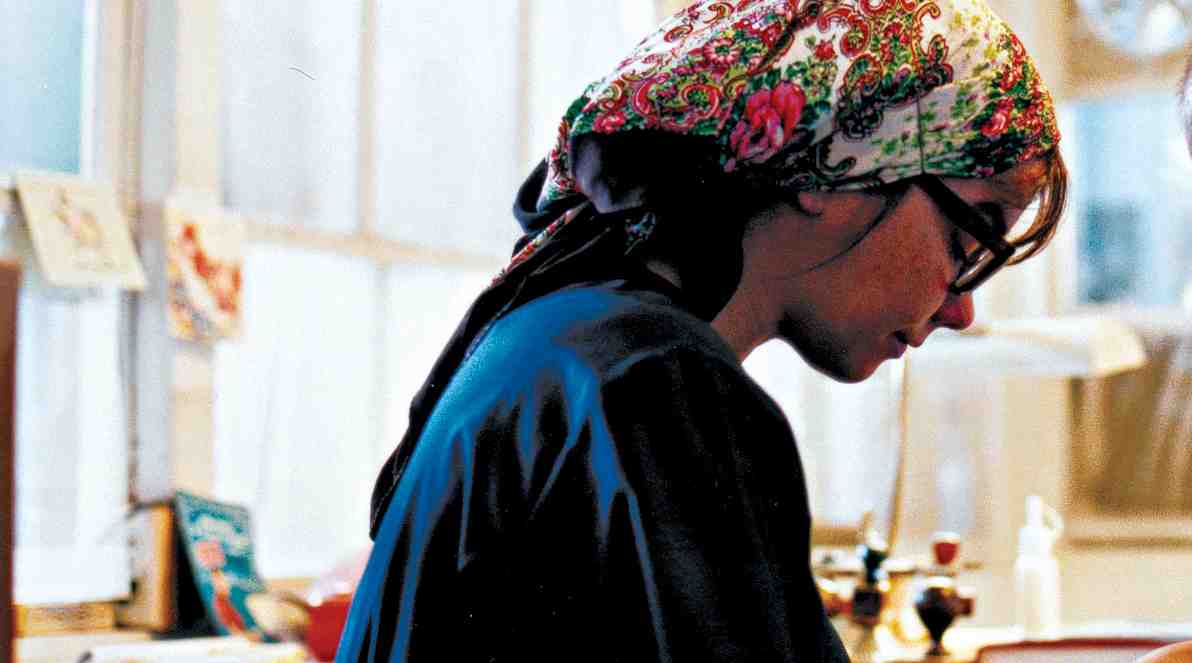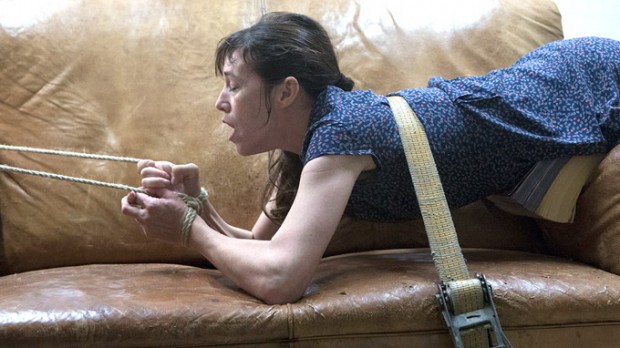
Lars Von Trier, the Danish director and screenwriter behind such films as Melancholia (2011) and Antichrist (2009), is a controversial figure in the world of contemporary cinema.
Half of the 14 films he has directed and written from 1977 to his most recent film, Nymphomaniac, in 2013, follow a female protagonist, and feature such contentious themes as sexuality, society and human nature, and psychological trauma and pathology. Any man repeatedly tackling such personal and intimate parts of the female experience is inevitably exposing himself to scrutiny.
There have been many articles written about the so-called blatant misogyny found in his films, and there are some valid arguments one could make in regard to this notion, but there is one argument in particular, that many such articles are largely built upon, that is completely absurd: that the treatment of women in his films is presented to be mimicked, rather than abhorred.
Anyone who understands anything about storytelling can clearly see how ridiculous this argument is. It’s the same as saying “12 Years a Slave” is encouraging people to own slaves simply because it depicts slavery.
His films clearly show the many forms and consequences of oppression towards women in an attempt to reveal and expose, and whatever other agenda he may have or subconscious male fantasies he may be playing out, the overarching plots of the vast majority of his films present women as sympathetic characters, and present the oppression they face as disgraceful and consequential, and it doesn’t get more feminist than that.
1. He makes films that focus entirely on a female protagonist

According to the-numbers.com, out of the top 20 highest grossing dramas from 1995 to 2016, only five follow a female protagonist, and all five of those are part of the “Twilight” series, which anyone would be hard pressed to defend as feminist.
It has neither been lucrative nor popular to make films that focus on women in recent years, but Lars Von Trier has done it repeatedly. “Breaking the Waves”, “Dancer in the Dark”, “Dogville”, “Manderlay”, “Melancholia”, and “Nymphomaniac” all inarguably follow the actions of one central female character, from beginning to end, with the male characters in supporting roles.
In each of these films, the action starts and ends with her, the conflict revolves around her, she drives the plot, she is integral to the climax, and the story is told through her eyes.
Uma Thurman, who has a short but powerful appearance in Nymphomaniac as a deeply distressed woman whose husband is leaving her for the main character, said it best: “The idea that people debate whether [Lars Von Trier is] a misogynist? People should debate whether people who don’t even write women are misogynist. The fact is, he’s dedicated a large portion of his artistic life to the exploration of the female psyche—good and bad, light and dark, shadows, textures. [That] …to me, defies the concept that he doesn’t have respect, interest, and genuine compassion in women. People should question writers that don’t even give a damn about a female character. They are the misogynists.”
2. His female characters take action, show humanity, are relatable, and have integrity

Search for a clear definition of what defines a “strong female character” and you’ll find a million answers, but creating multi-dimensional characters with relatable thoughts and actions show that they are not being treated as narrative objects, or tools to propel a more important character’s actions, but instead, as real human beings.
It’s the inability or refusal to remain passive that typically drive his female characters to act and thus drives the plot forward. Repeated pressure to remain passive, like in the case of Justine from “Melancholia”, typically only leads to acting out in other, very human, ways. And prolonged victimization, leads not to tears, but to fierce retaliation, like in the cases of “Dogville” and “Antichrist”. (More about “Antichrist” later.)
Bess from “Breaking the Waves” and Selma from “Dancer in the Dark” both have moral integrity to the extreme, and are among the most selfless and compassionate characters to be found in cinema, and neither without a personal struggle that demands our emotional investment, and brings to the character relatable human qualities.
Although relatable in how it is represented, overwhelming compassion hits close to the classic feminine stereotype, but Lars Von Trier’s female characters are also extremely cerebral, and don’t merely experience the actions of the plot, but actively interpret them. Grace from “Dogville” and “Manderlay”, Claire from “Melancholia”, and Joe from “Nymphomaniac” are all extremely analytical and articulate characters.
3. Oppression is the main obstacle for most of his female characters

Bess from “Breaking the Waves”, Grace from “Dogville”, “she” from “Antichrist”, Joe from “Nymphomaniac”, and Justine from “Melancholia” are all constantly being told, from both men and women, and from both individuals and society at large, that their emotions, desires, and thoughts are either foolish, pathological, or invalid, and the consequent repression and shame these characters experience typically lead to the climactic action of the plot, which is typically a rash retaliation or act on the part of the female character.
These climaxes are often cited as evidence of Von Trier’s misogyny, when in actuality, they are displays of oppression’s’ detrimental impact on the human, in this case female, psyche.
Still, Von Trier is a provocateur, and part of that technique is to ask questions without necessarily providing concrete answers. One could dismiss the actions of “she” from “Antichrist” as Von Trier’s attempt to show that women are, by nature, evil and dangerous, but upon closer examination.
We see that the female character’s husband has been neglectful of her and their child, dismissive of her intellectual endeavors, only gives her love and attention once she is emotionally vulnerable, guides her into going through unsafe withdrawal from psychological medication when she’s in a fragile state, completely isolates her from anyone but himself, and alternately offers to support her and then shamelessly mocks her and treats her like an idiot child. This is textbook emotional abuse.
This, joined with prolonged exposure to deeply misogynist writings throughout her thesis research, the traumatic loss of her child, and her consequent self-hate and decision that human nature can only be evil, all lead to a complete psychotic break, that may have been her innate nature all along, but is more likely a result of hundreds of years of oppression by men culminating with her own husband. It’s at once a misogynist and feminist film, and it allows the audience to choose, which is what makes it so fascinating and complicated.
4. Feelings or desires lead to excommunication for his female protagonists

For Von Trier’s female protagonists, doing what they feel is right, following their beliefs, asserting their needs, communicating their desires, and exposing their true feelings can only fall on deaf ears or lead to total rejection by their families, friends, and society. Any passivity exhibited by these characters isn’t an expression of their nature, but a symptom of having no other choice.
Bess, from “Breaking the Waves”, lives in an unforgiving Christian society where women have no voice in the community, has only her extremely critical mother and sister-in-law to support her, who constantly shame her for having feelings and call her “dumb”, “feeble”, and “not right in the head”, and is being treated by a doctor, whose purports to love her, but only joins the chorus of unrelenting condemnation every time he opens his mouth, so any attempt Bess makes to communicate her feelings or intentions is hopeless.
It takes her death to make anyone regret not listening to her, and still the church attempts to condemn her to eternal suffering in hell. Even her husband, who pities her, doesn’t realize that he never listened to her needs and desires until she’s already dead.
Joe from “Nymphomaniac” is forced to live as an outsider and work in crime because she is rejected by society and conventional professional life for her private sexual practices, and can only stay in regularly society on the condition that she attend group therapy, which only serves to further shame and isolate her. She must keep her feelings and desires secret to avoid rejection outside the life of crime where she ironically finds reprieve.
5. His female protagonists’ are judged on their ability to perform domestic tasks

For both Bess from “Breaking the Waves” and Grace from “Dogville” their ability to be “good”, which in both cases will save their life, or in Bess’ case, her soul, is judged on their ability to do menial household tasks. In both cases, the work is painted as voluntary by the community, but we come to learn that it is actually mandatory. The citizens of Dogville act as if the work is a measure of Grace’s morality, and downplay its difficulty, when in actuality it is domestic slavery perpetuated by threats, and eventually, shackles.
“She” from “Antichrist” and Joe from “Nymphomaniac” both love their children, but the neglect of their their needs and desires lead them to neglect and mistreat their children in conscious or unconscious rebellion.
In “Nymphomaniac”, Joe is repeatedly shamed by her husband, Jerome, for pursuing her sexual needs because it forces her to neglect her child. However, once Joe and Jerome separate, he puts the child into a boarding school, proving that a parent’s constant presence in the child’s life was never a priority of his, and that instead, he was using the child as a ball and chain.
Justine from “Melancholia” is repeatedly pressured to be happy and content with her new role as a wife, and hide her crippling depression, even from her husband. She may have a successful career, but her boss treats her more like a crystal ball with mystical powers, rather than giving her credit for her intellect.